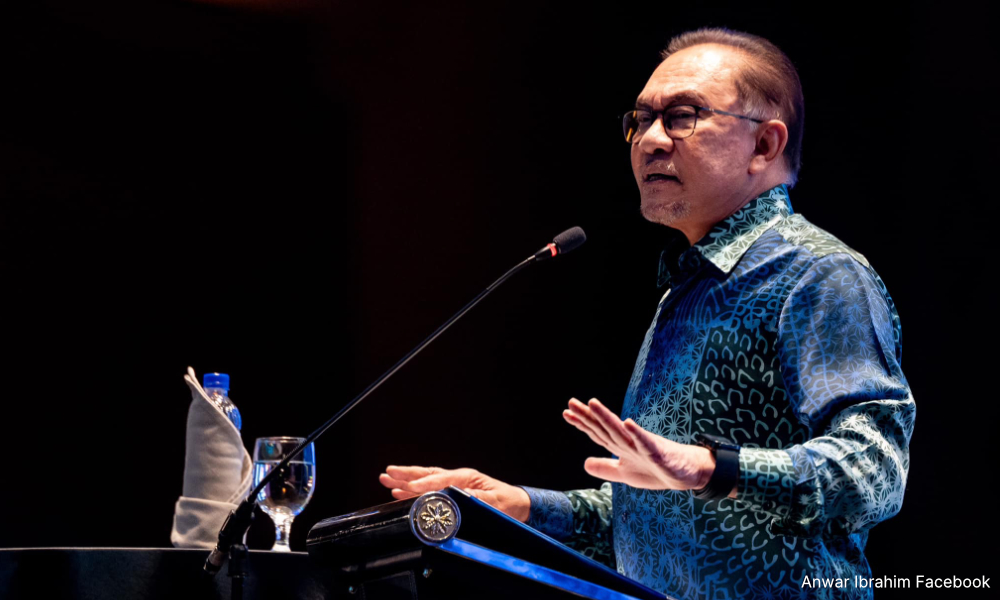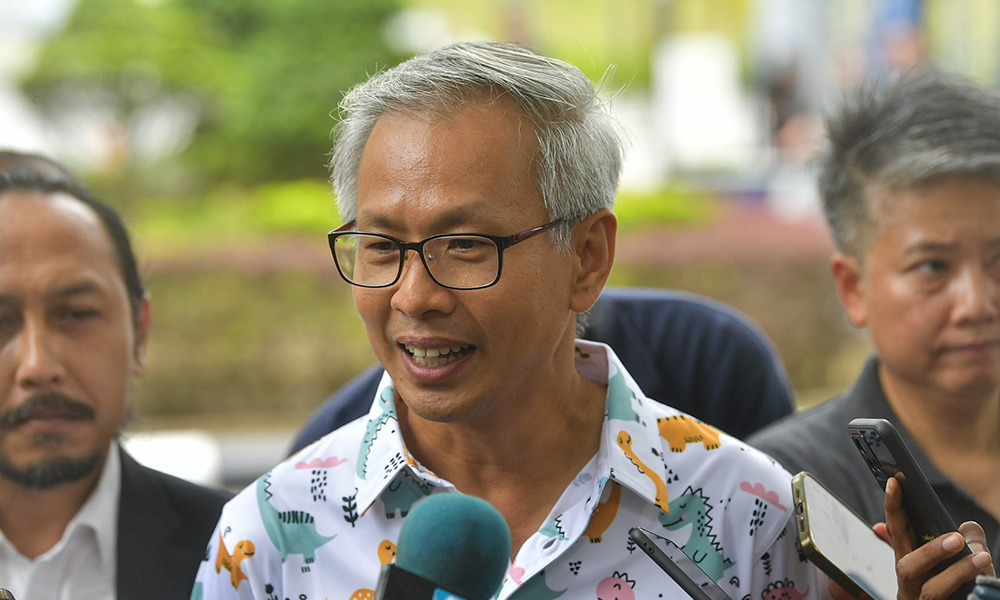The real story behind the convicted felon Najib Abdul Razak’s commuted sentence is a story about Malaysia’s little people.
The untouchables of Malaysia are the super-rich and political elite. They are treated with kid gloves and when they commit serious crimes, they are treated with “kindness and compassion”, especially if they have done good deeds.
The little people are almost invisible, but they diligently pay their taxes and without their hard work, the nation will grind to a halt.
It is the little people of Malaysia who subsidise the lives of the elite. So, who are they, the little people? They are you, me, the makcik, the ordinary man in the street, the farmer, the office worker, the fisherfolk and the roti canai maker.
The little people have no access to hot-shot lawyers, they cannot leap-frog to the top of the queue for pardons, and they are clueless about obtaining full acquittals or discharges not amounting to an acquittal (DNAA).
They are too busy scraping a living and cannot spare time to do good deeds for the nation.
The little people cannot afford a private pension pot, or have savings.
They live from hand to mouth, unlike the elite who pay clever accountants to stash their loot overseas in offshore accounts, just like the Pandora and Panama Papers exposé. Some can’t even be bothered to declare their assets.

The little people cannot reduce their massive fines, but the elite can. At best, they can opt to pay an RM100 fine instead of the RM300 summons for speeding. The elite has many kabel-ke-atas (connections to the top), and a well-placed phone call will cancel the summons.
The elite can defer paying taxes with a simple letter of appeal, but the little people are subject to strict rules because the tax man will threaten them with, “Pay first, talk later”.
The overworked tax person probably finds it easier to monitor the little people who have some assets.
Delay and speculation
In his keynote address at Invest Malaysia at St Regis Hotel in March 2023, Prime Minister Anwar Ibrahim said his government would adopt a zero-tolerance approach towards misconduct and corruption, and promised both a transparent and accountable administration.
Despite the promises, why was there so much secrecy over Najib’s application for a royal pardon?

For close to a week the nation was kept on tenterhooks about Najib’s bid. The little people suspect that the delay was intentional, to gauge the mood of the nation.
The Singapore-based Channel News Asia seemed to be better informed than the local media, about Najib’s commuted sentence. Malaysians were horrified to learn about what the CNA claimed had come from reliable sources.
Confusion and anger rippled through the little people. What was the communications minister's response?
Back home, we know that the little people who dare to criticise the Madani administration get short shrift and are threatened with legal action.
On Monday, Jan 29, Utusan Malaysia leaked news about Najib’s pardon but retracted the article within the hour. Was Utusan told off for spreading misinformation or unverified news?
Ministers warned against speculation. They urged patience. The delay created a pressure cooker situation. Was this an ill-thought exercise to find the little people’s reaction to Najib’s pardon?
When the decision was finally revealed five days after the Pardons Board meeting, all hell broke loose.
How does the commuted sentence serve the interests of the little people and the nation?
It is the little people and their offspring who will bear the burden of paying off the national debt which currently stands at RM1.4 trillion, which Najib helped create. Meanwhile, the elite continues to rape and plunder the nation, its people and the environment.
Najib’s lawyer, Muhammad Shafee Abdullah told the world that it was the king who “was thinking of a full pardon for Najib”. He said secret ballots were distributed.

DAP’s Tony Pua was swiftly hauled for questioning by the police. What was his crime? DAP’s Kepong MP Lim Lip Eng wondered if Shafee had broken the law about the “confidential” information concerning the Pardons Board. In Malaysia, “confidential” has no meaning.
More confusion, more uncertainty
Earlier in the week, we were told that only the king had the sole discretion to determine Najib’s pardon. A few days later we were told that it was a collective decision. More confusion, more uncertainty.
What did the individual members of the Pardons Board advise the king? Why were their recommendations rejected? Najib is no ordinary prisoner. He may have been bestowed the highest award in the state of Pahang, but to the little people, and the world, he is a thief and a kleptocrat.
When the rakyat’s anger reached fever pitch by the weekend, Anwar stepped in and did what Anwar does best - to spin. A convict need not serve at least three years of his sentence to be eligible for a pardon.
The main consideration in Najib’s case was not legal, but the king’s compassion. Najib’s pardon was made possible because of his “deeds” to Malaysia.
Former prime minister Dr Mahathir Mohamad and former finance minister Daim Zainuddin also contributed some good deeds to Malaysia. Why waste time and resources with a lengthy probe and trial? Just pardon them.
The little people were buoyed by promises of reform. They were full of hope but now feel betrayed… but one day the worm will turn. - Mkini
MARIAM MOKHTAR is a defender of the truth, the admiral-general of the Green Bean Army, and the president of the Perak Liberation Organisation (PLO). Blog, X.
The views expressed here are those of the author/contributor and do not necessarily represent the views of MMKtT.




No comments:
Post a Comment
Note: Only a member of this blog may post a comment.